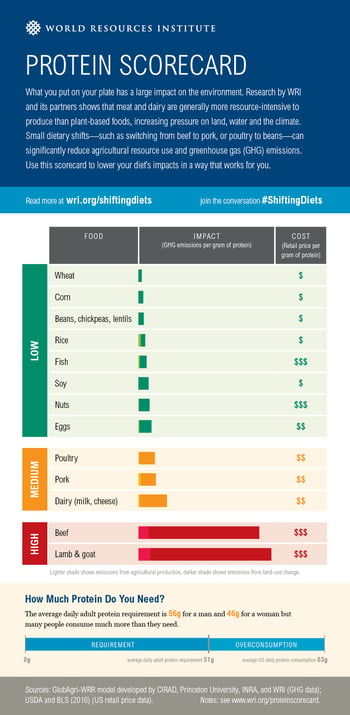Over the years, plant-based diets have become increasingly popular, as it’s shown to be environmentally friendly and beneficial for your health. It’s gained so much traction that celebrities from Miley Cyrus to Natalie Portman have even picked up the practice.
When healthcare facilities think of how to implement sustainable practices, plant-based meal options may not be at the forefront. But they should be.
While trendy endorsements may come and go, plant-based eating does not seem to be some fleeting fad. Here are five reasons you should consider incorporating plant-based options into your facility’s food service program.
Nutrition
Nutritional needs are a common concern with plant-based diets, especially in a healthcare setting. Will they get enough protein? How can plant-based satisfy vitamin and mineral intake? Will they be full?
Although questions like these may arise, the Academy of Nutrition and Dietetics actually states that “appropriately planned vegetarian, including vegan, diets are healthful, nutritionally adequate, and may provide health benefits for the prevention and treatment of certain diseases.”
Nutrients of specific concern, like protein, are widely available in ingredients such as beans, vegetables, and grains.
On average, women weighing 125 pounds need about 45 grams of protein per day, while men weighing 160 pounds need approximately 58 grams. Studies have shown that we already consume nearly double the amount on average.
All of this to say, it’s not any more difficult to meet needs such as protein than any other nutritional ingredient, and plant-based diets can offer adequate alternatives.
Disease
Plant-based eating can also be beneficial in the control and prevention of disease. This is commonly observed in conditions such as diabetes, cancer, and heart disease.
In a clinical trial published in the Journal of Geriatric Cardiology, participants with type 2 diabetes were put on a low-fat vegan diet for 22 weeks. By the end of the trial, 43% (21 of 49) of the vegan group participants were able to reduce their diabetes medications.
Their findings also concluded that plant-based diets can lower the risk of developing diabetes by 34%.
In addition to diabetes, some studies also show that those who follow plant-based diets have the lowest risk for cancer, heart disease, and hypertension when compared with other diets, and they show a 24% reduction in ischemic heart disease death rates compared to nonvegetarians.
Greenhouse Gases (GHGs)
Not only has incorporating plant-based food been proven to be healthy for you, it’s proven to be beneficial for the environment, too.
Alternatives like wheat, corn, and legumes have the lowest greenhouse gas emissions per gram of protein and dairy products.
By incorporating more vegetarian options into our diets, we can help reduce human emissions of greenhouse gases.
This protein scorecard from the World Resource Institute shows the environmental impact and cost per gram of protein for different foods.

Tip: It's important to note there are ways to reduce the environmental impact of eating meat. Joyce Farms, a supplier for HHS, uses regenerative agriculture to reduce carbon emissions and their overall environmental impact.
Carbon Footprint
When we work to reduce greenhouse gas emissions, we’re also contributing to minimizing our carbon footprint.
For example, the footprint of beef is more than 20 times higher than peas.
Quick fact: If a consumer ate plant-based for one day, they could save 45 pounds of grain, 30 square feet of forested land, and 1,100 gallons of water. That’s nearly enough to supply the average American with water for two weeks.
Water Footprint
Not only can one day of plant-based eating save 1,100 gallons of water, but by limiting water usage, we can cut our lifetime water footprint by over a whopping 50%.
Compared to producing animal proteins, producing plant proteins requires just a tenth of the water needed, proving to be a more sustainable and environmentally friendly option.
Conclusion
As more people begin to look for plant-based options when eating out — including at hospitals — you’ll want to ensure you have menu items that meet their needs. Offering plant-based options will help build a more inclusive space for visitors while also helping boost retail food sales.
Incorporating plant-based items can also contribute to your organization’s commitment to sustainability by reducing your carbon and water footprints and greenhouse gas emissions.
